- This article contains affiliate links. I may receive a commission if you purchase from them, at no extra cost to you.
South Africa captivates the imagination with its promise of wild safari plains, cosmopolitan cities, and dramatic coastlines. Yet, its very diversity demands thoughtful preparation to navigate seamlessly from the bush to the Winelands.
Moving beyond common knowledge requires insider insights that ensure safety, deepen cultural connections, and unlock effortless adventures.
This guide distills essential wisdom into 12 crucial tips—your foundation for a journey that is as smooth as it is spectacular. Whether you’re tracking the Big Five or exploring urban energy, let this be your first step toward an informed and unforgettable South African experience.
Table of contents ⇅
1Sort your visa requirements well in advance
This might seem like the most obvious of basic travel tips, but for South Africa, it’s crucial and can’t be rushed. Visa requirements vary dramatically depending on your nationality. Many passport holders (like the US, UK, and most EU countries) don’t need a visa for tourist visits of up to 90 days. However, this is not universal.
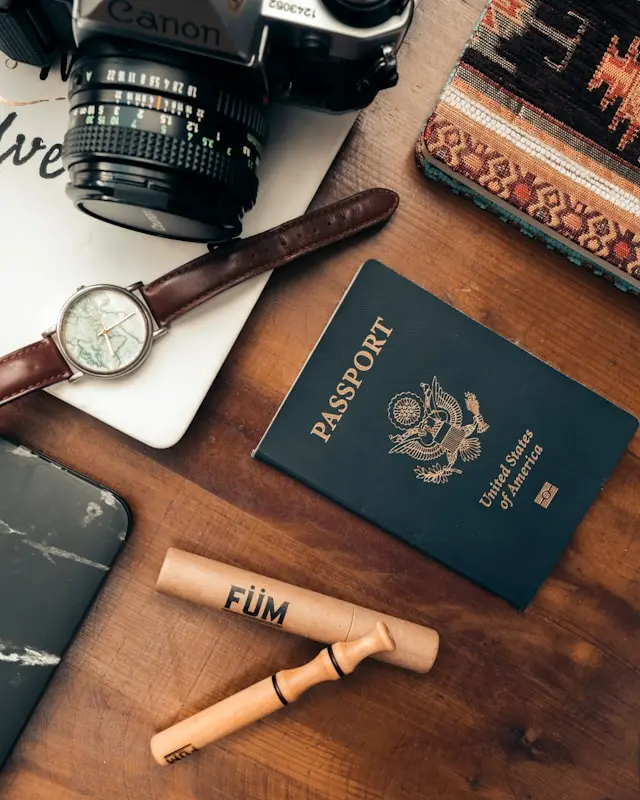
My personal approach:
I always check the official South African Department of Home Affairs website and confirm with my airline six months before my trip. The rules can change, and you don’t want a last-minute panic. Ensure your passport is valid for at least 30 days after your intended departure date from South Africa and has at least two completely blank visa pages for entry stamps.
I keep a digital copy of my passport and visa approval email on my phone and in my email, and I also carry a physical photocopy in a separate bag. It’s a simple step that can save a huge headache.
A durable, organized document holder is a lifesaver for keeping your passport, visas, printed itineraries, and health certificates in one place. I never travel without my leather travel document organizer. It keeps everything pristine and easy to access during check-in and border control.
2Get the right vaccinations and pack a comprehensive health kit
Your health is your greatest asset while traveling. While no specific vaccinations are required for entry into South Africa (unless you’re traveling from a yellow-fever endemic country), several are highly recommended.
My personal health prep:
I scheduled an appointment with a travel clinic four months before my trip. Based on their advice, I made sure my routine vaccinations (MMR, Diphtheria-Tetanus-Pertussis, Polio) were up to date and got vaccinations for Hepatitis A and Typhoid. For those planning a safari in Kruger or other game reserves, a malaria prophylaxis is a non-negotiable topic to discuss with your doctor.
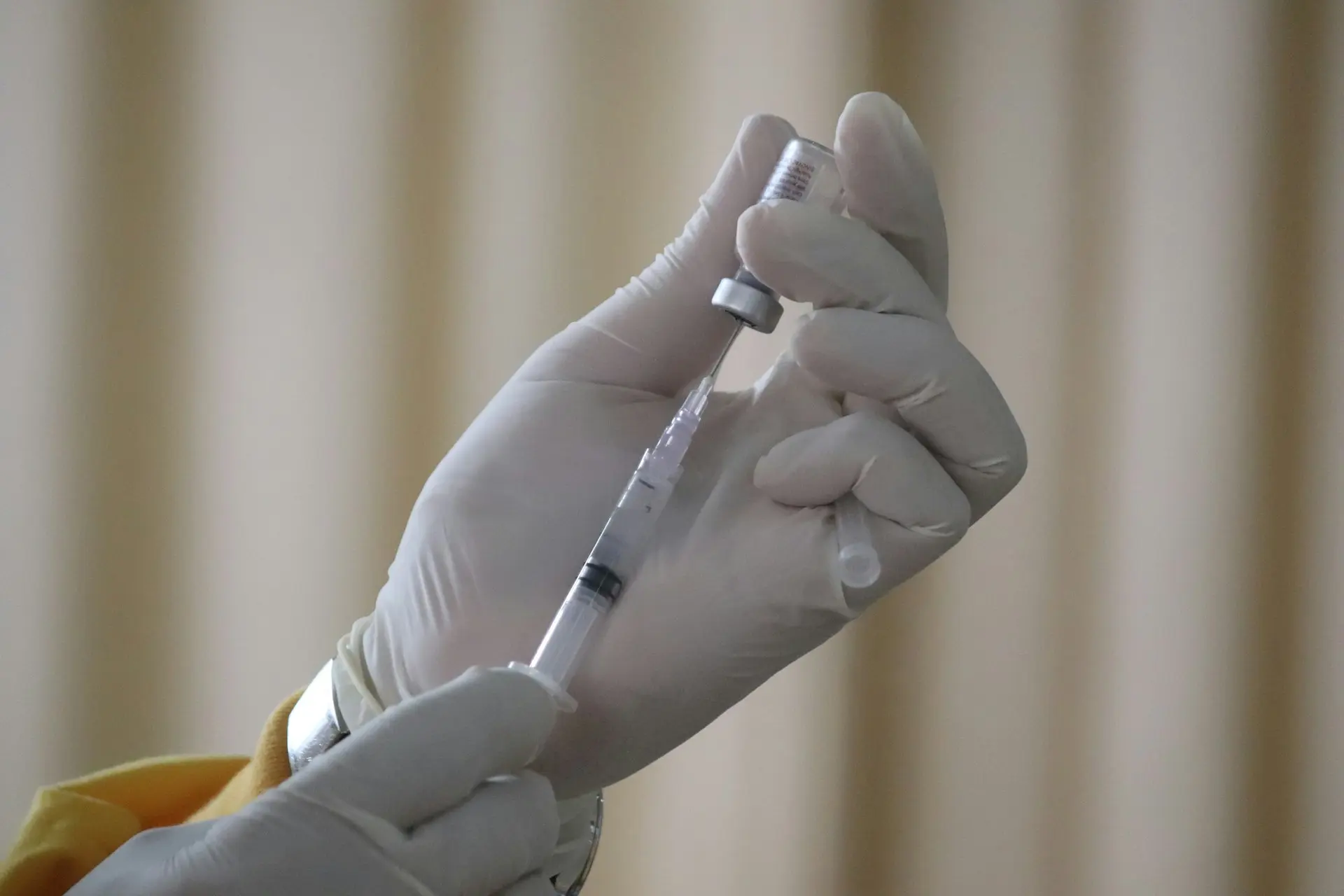
Beyond vaccinations, my personal health kit is extensive. I pack a strong DEET-based insect repellent, a high-SPF sunscreen (the African sun is intense!), a broad-spectrum antibiotic (prescribed by my doctor for emergencies), anti-diarrheal medication, rehydration salts, antihistamines, and pain relievers. Many of these items can be found in South Africa, but I prefer to have my trusted brands on hand from day one.
A well-stocked first-aid kit is one of the most essential travel safety tips I can offer. I built my own, but this comprehensive travel first aid kit is a fantastic pre-made option that covers all the basics and more.
3Master the money situation: Cash, cards, and tipping
South Africa is a modern country with a sophisticated banking system, but understanding the financial landscape is key. The local currency is the South African Rand (ZAR).
My personal strategy:
I never arrive in a new country without some local currency. I exchange a small amount (around $100 USD) at the airport upon arrival to cover immediate expenses like taxis or tips. For the best rates, I use ATMs at major shopping malls or banks (like Standard Bank or Nedbank) to withdraw cash as needed. I always inform my bank and credit card companies of my travel dates to avoid my cards being frozen for suspicious activity.
Credit and debit cards are widely accepted in cities and tourist areas. However, having cash is essential for markets, smaller towns, and tipping. Speaking of tipping, it’s a standard practice in South Africa. A 10-15% tip is expected in restaurants if service wasn’t included. For safari guides and trackers, it’s customary to tip separately at the end of your stay (ask your lodge for current guidelines).
To keep my cash and cards secure, I swear by a discreet RFID blocking money belt. I use it for carrying the bulk of my cash and a backup card, only keeping a day’s worth of spending money in my wallet.
4Prioritize your safety with smart habits
This is arguably the most discussed topic and the core of many essential travel safety tips for South Africa. While the country has areas that require caution, you can have a incredibly safe trip by being smart and situationally aware.
My personal safety rules:
- Research areas: I research my accommodations and neighborhoods thoroughly. I stick to well-lit, busy areas after dark and never walk alone at night. Uber is my best friend for safe, affordable transportation in cities.
- Don’t flaunt wealth: I leave expensive jewelry and flashy watches at home. I use a discreet, older-looking camera bag instead of a brand-new, expensive one.
- Car safety: I never leave anything visible in a rental car—not even a charging cable or an empty bag. I keep doors locked and windows up, especially when stopped at traffic lights.
- Trust your gut: If a situation feels wrong, I leave immediately without worrying about being polite.
A simple but effective tool for peace of mind is a personal safety alarm. It’s small, easy to carry, and the loud sound can deter potential threats and attract attention if needed.
5Pack strategically for all climates and occasions
South Africa’s seasons are opposite to those in the Northern Hemisphere, and its climate varies wildly from region to region. You could experience chilly mornings on safari, hot afternoons in the city, and cool, windy evenings in Cape Town—all in the same trip.
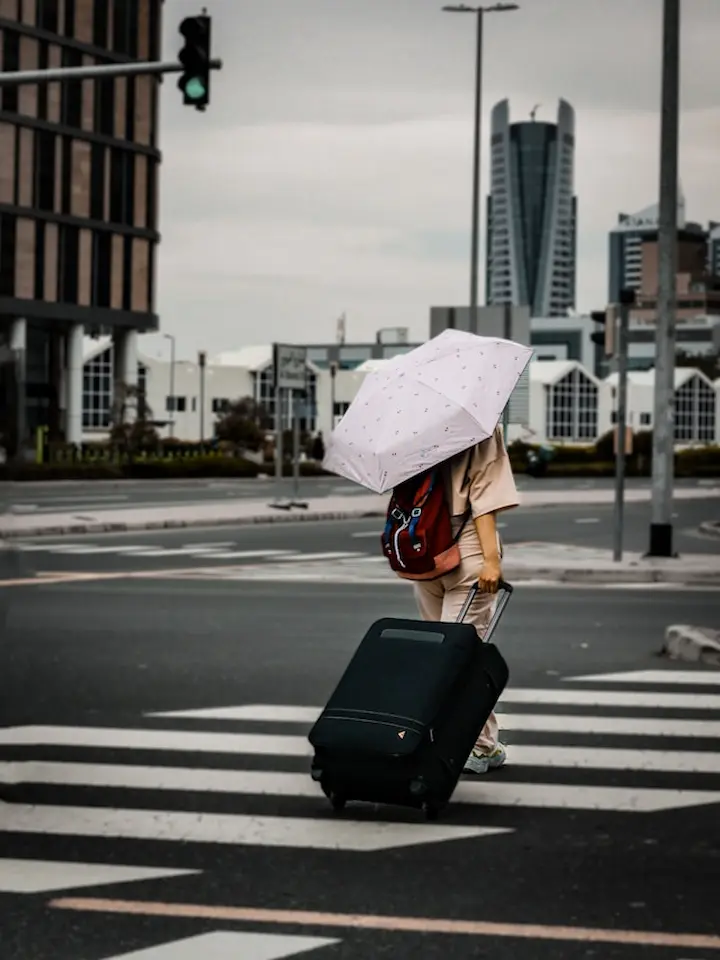
My personal packing list
The key is layers. I pack:
- Safari: Neutral-colored clothing (khaki, beige, green, brown), a warm fleece or jacket for morning game drives, a wide-brimmed hat, and sturdy closed-toe shoes.
- Cities: Comfortable walking shoes (you’ll need them!), a light rain jacket, and a mix of casual and smart-casual outfits for nice restaurants.
- Universal essentials: A universal power adapter (South Africa uses Type D, M, and N plugs, but a multi-adapter covers all), a powerful portable charger, and a high-quality microfiber towel.
For a road trip, my packing tips for road trip success include a soft-sided cooler bag for drinks and snacks, a physical road atlas as a backup to GPS, and a multi-tool. A reliable universal travel adapter is an absolute non-negotiable item in my suitcase.
6Stay connected: SIM cards, Wi-Fi, and navigation
Being able to navigate, communicate, and look up information on the go is essential for both convenience and safety.
My personal solution:
I buy a local SIM card upon arrival at the airport. Providers like Vodacom and MTN have kiosks in the international arrivals hall. Their tourist packages are affordable and offer plenty of data for Google Maps, Uber, and social media. This is infinitely cheaper than international roaming with my home provider.
I also download offline maps on Google Maps for the areas I’ll be visiting before I leave my hotel WiFi. This has saved me multiple times when I’ve ventured into areas with spotty signal. For my laptop and other devices, a portable WiFi hotspot can be useful, though I find a local SIM with a good data plan is usually sufficient.
To keep all my devices powered during long days of exploration and photography, I never leave without a high-capacity power bank. It’s a literal lifesaver when using GPS all day.
7Choose your transportation wisely: Renting a car vs flying
South Africa is a large country. Deciding how to get around depends on your itinerary, budget, and comfort level.
My personal take:
For the ultimate freedom, especially for exploring the Garden Route or the Winelands, renting a car is fantastic. South Africa has an excellent network of well-maintained national roads (N-roads). I always book with a major international rental company, take full insurance coverage, and familiarize myself with the rules of the road (they drive on the left!).
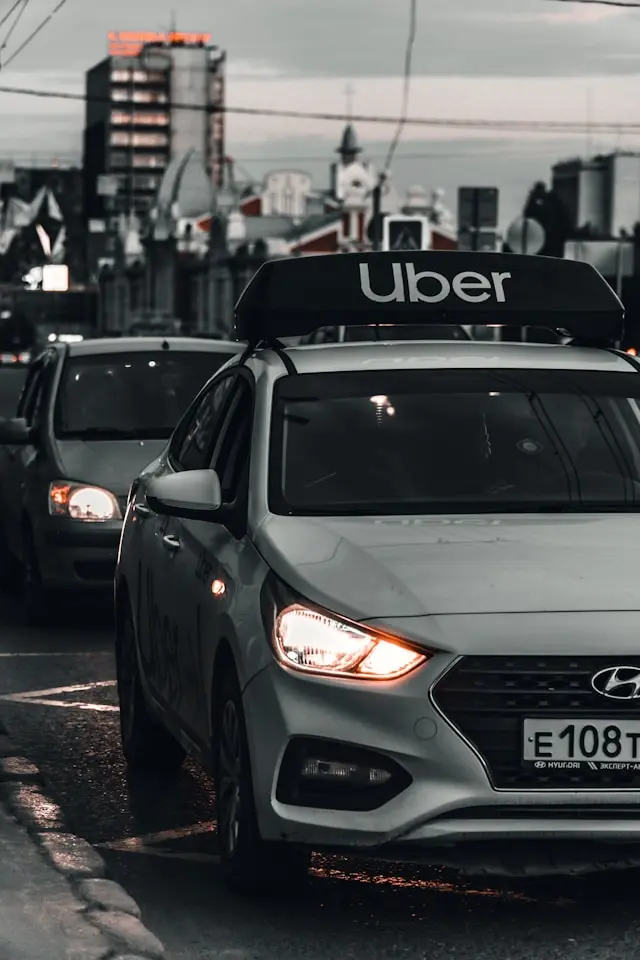
For longer distances (e.g., Johannesburg to Cape Town), I prefer to fly domestically with carriers like Airlink or British Airways (operated by Comair). It saves precious time. Within cities, I rely exclusively on Uber; it’s safe, metered, and eliminates the need to navigate unfamiliar streets.
Renting a car is often the easiest way to explore South Africa at your own pace.
Pro Tip
If you’re renting a car, a must-have for packing tips for road trip success is a reliable car phone mount and charger. It keeps your phone visible for GPS navigation and fully charged.
8Embrace the culinary scene but be water-wise
South African cuisine is a delicious fusion of cultures. You must try a braai (South African barbecue), bunny chow (a hollowed-out loaf of bread filled with curry), and bobotie (a spiced minced meat dish). Pair it with fantastic local wines from Stellenbosch and Franschhoek.
My personal food rule:
I eat where it’s busy. A busy restaurant means high turnover and fresh food. I enjoy street food from vendors that look clean and have a queue of locals. I’m adventurous but cautious with raw vegetables and fruits I can’t peel myself.
Regarding water, tap water is generally safe to drink in major cities like Johannesburg, Cape Town, and Durban. However, in more remote areas or if you have a sensitive stomach, I stick to bottled or filtered water. To reduce plastic waste, I travel with a water bottle with a built-in filter. It allows me to fill up from any tap and know I’m drinking safe, clean water.
9Understand wildlife etiquette on safari
A safari is often the centerpiece of a South African trip. To make the most of it and ensure everyone’s safety (including the animals), following proper etiquette is paramount.
My personal safari code:
- Listen to your guide: They are experts. Never stand up, make loud noises, or try to get the animal’s attention.
- Silence is golden: The best moments happen when you’re quiet and patient, just listening and observing.
- No selfies with wildlife: Never attempt to lure an animal closer for a photo. Use a zoom lens and keep a safe, respectful distance at all times.
- The animals have the right of way: Always. Your vehicle is a guest in their home.
A good pair of binoculars is arguably the most important piece of safari gear after your camera. They bring the action up close and personal. These compact binoculars for travel are powerful yet small enough to carry easily on game drives.
10Invest in comprehensive travel insurance
This is one of the most critical 12 essential travel tips I can possibly emphasize. Do not, under any circumstances, skip this. South Africa has excellent private medical care, but it is expensive for foreigners. A medical emergency without insurance can be financially devastating.
My personal policy
I always choose a policy that includes:
- Comprehensive medical coverage, including hospitalization and evacuation.
- Coverage for adventure activities (if you plan on hiking, shark cage diving, etc.).
- Trip cancellation and interruption protection.
- Coverage for lost, stolen, or damaged luggage and gear.
I read the fine print carefully to know exactly what is and isn’t covered. It’s not an exciting purchase, but it’s the most important one you’ll make for peace of mind.
11Learn a few local words and cultural nuances
South Africa has 12 official languages! While English is widely spoken, making an effort with a few words of Zulu, Xhosa, or Afrikaans will be met with warm smiles and appreciation.
My personal shortlist:
- Hello (Zulu): Sawubona (to one person) / Sanibonani (to more than one)
- Thank you (Afrikaans): Dankie
- How are you? (Xhosa): Kunjani?
- Yes (Afrikaans): Ja (pronounced “ya”)
- No (Afrikaans): Nee
Beyond language, be aware that a quick, firm handshake is a common greeting. Tipping, as mentioned, is standard practice. Be respectful when photographing people; always ask for permission first.
12Book key experiences and accommodations early
South Africa is a popular destination, and the best places have limited capacity. This is especially true for premium safari lodges, sought-after hotels in Cape Town, and even certain tours.
My personal planning timeline:
For my dream safari lodge, I book 9-12 months in advance. For popular Cape Town hotels during peak season (December-February), I aim for 6-9 months. Key experiences like hiking Table Mountain (if using the cable car) or visiting Robben Island also benefit from advance booking to avoid disappointment.
- These are some of the most popular experiences travelers book in South Africa.
A great travel journal is perfect for keeping all your confirmations, reservations, and wonderful memories in one place. I use this beautiful hardcover travel journal to document everything, from my pre-trip planning to my daily experiences.
- Looking for the best hotels in South Africa? Here’s the platform I use to secure the top spots in advance.

Top hotels in South Africa
Find top-rated accommodations for your trip.
Your journey awaits
This list of 12 essential travel tips is the culmination of my own meticulous planning for the South African adventure I’ve always dreamed of. It covers the practicalities—from visas and vaccines to money and safety—so you can focus on what truly matters: immersing yourself in the breathtaking beauty, incredible wildlife, and warm hospitality of this magnificent country.
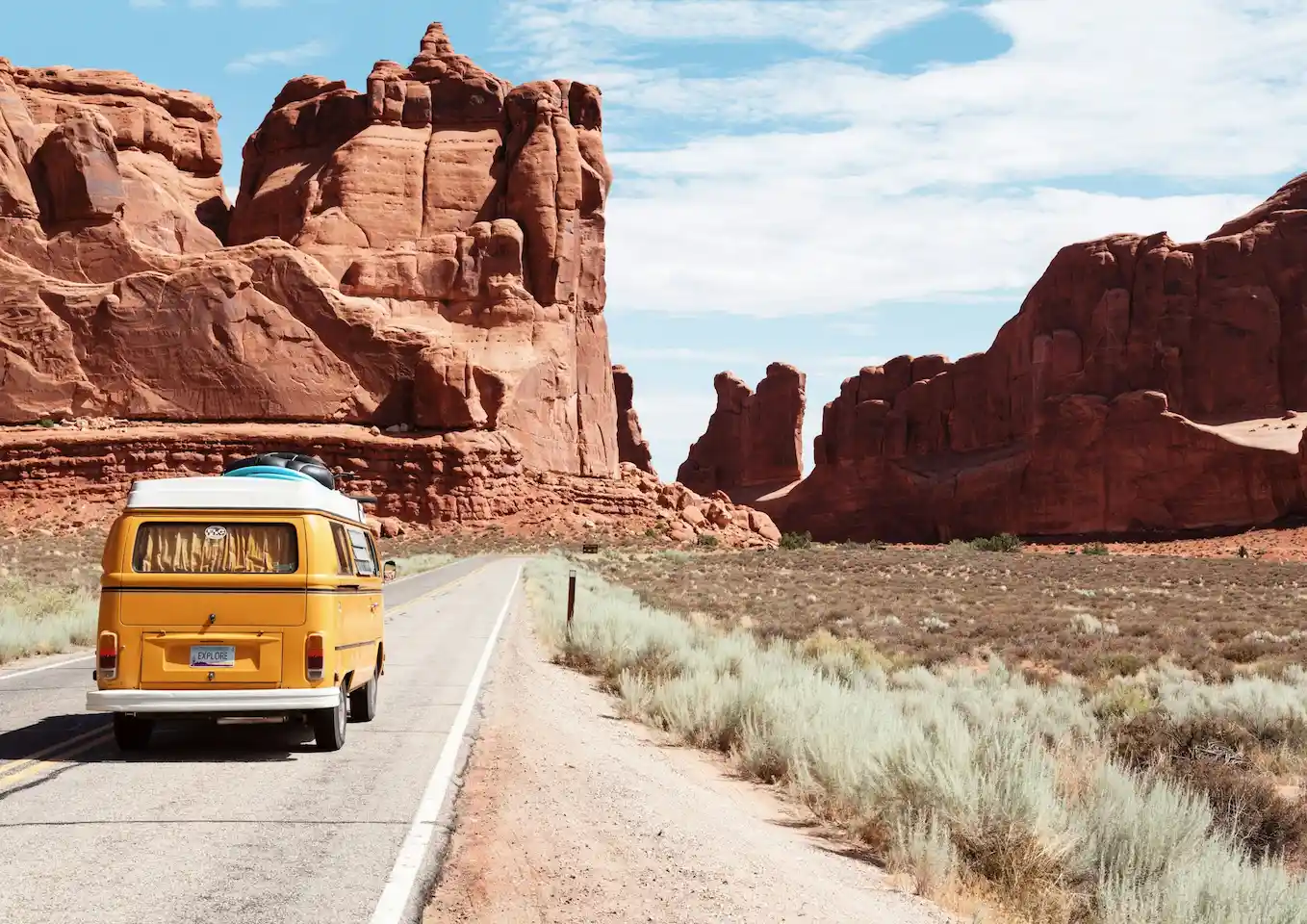
Preparation is the key that unlocks a truly effortless and enriching experience. By following these basic travel tips and essential travel safety tips, you’re not just planning a trip; you’re crafting the foundation for unforgettable memories. South Africa is waiting to awe you—all that’s left is to take the first step and book your ticket.
What’s at the top of your South African bucket list? Are you a safari enthusiast or a wine route wanderer? I’d love to hear what you’re most excited about in the comments below!




